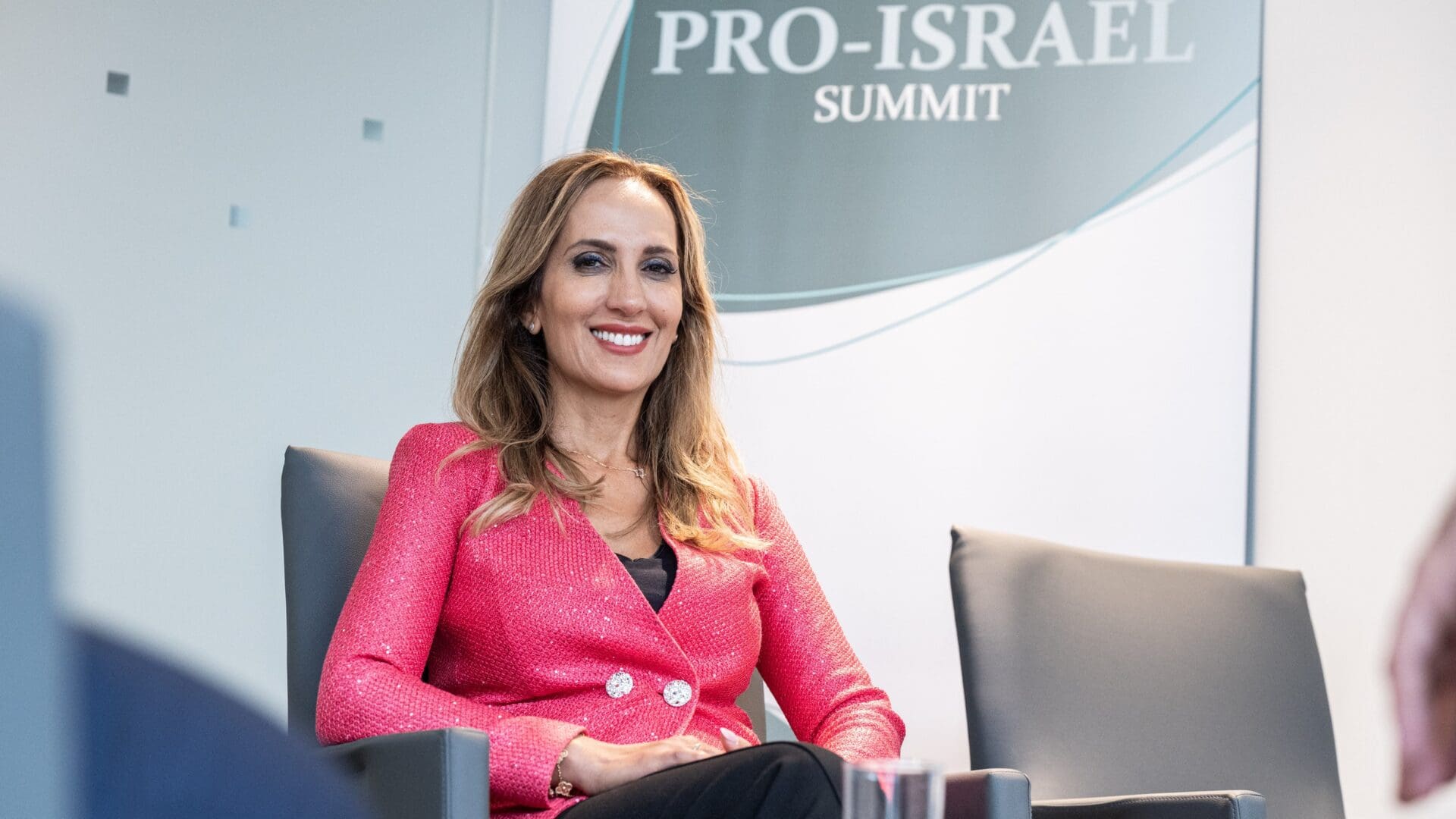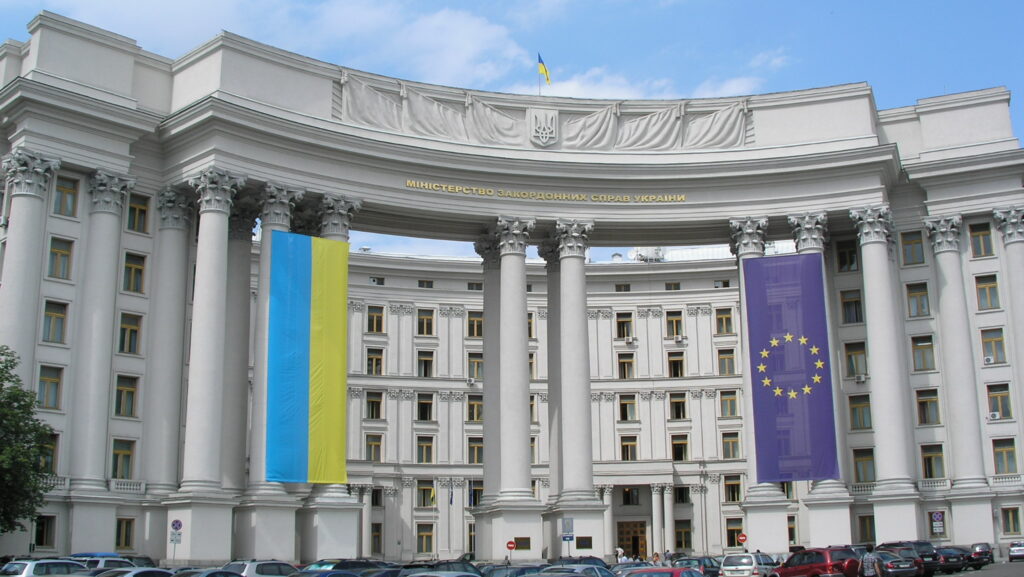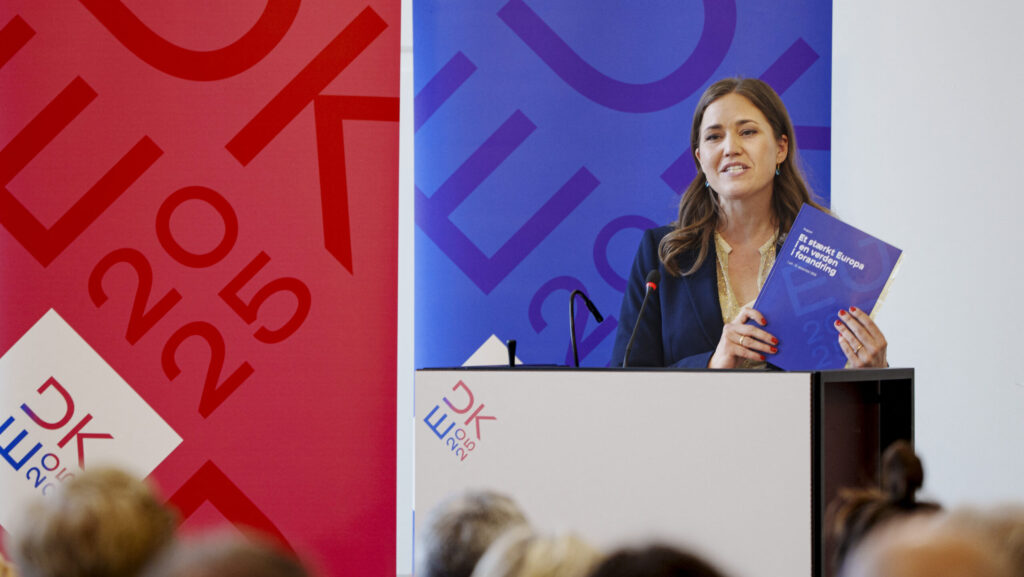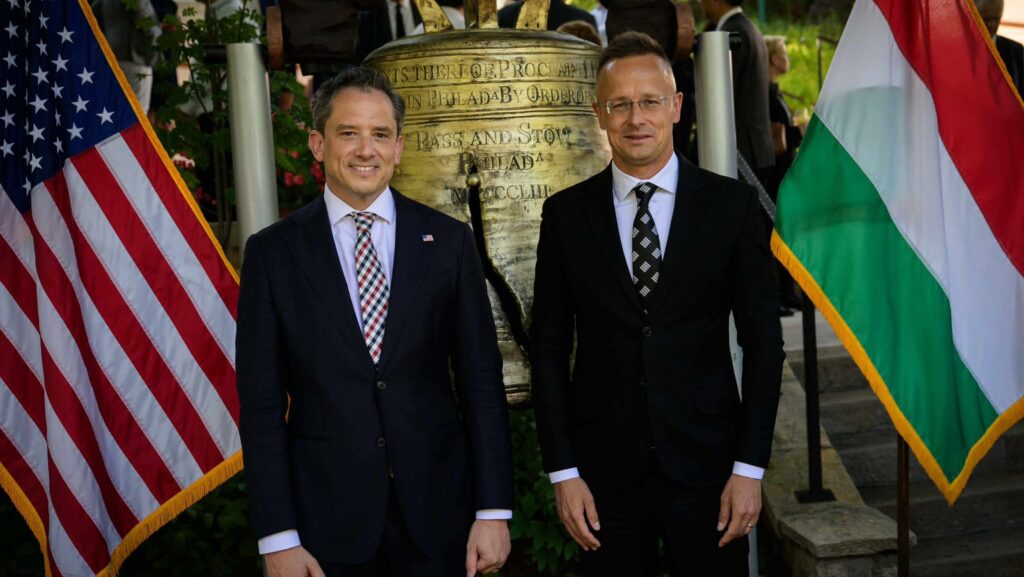Ellie Cohanim is Senior Fellow at the Independent Women’s Forum. She served as US Deputy Special Envoy to Monitor and Combat Anti-Semitism at the US Department of State during the Trump Administration. She was the State Department’s first Iranian-born Jewish Envoy, and led diplomatic initiatives resulting in historic breakthroughs in the Muslim world, including persuading the Global Imams Council (GIC) to adopt the IHRA working definition of anti-Semitism; and removal of anti-Semitic content from textbooks in the MENA region, all as part of the Abraham Accords efforts. Prior to her appointment to the US State Department, Ellie Cohanim was Senior Vice President and Special Correspondent for the Jewish Broadcasting Service (JBS). Previously, she was an executive at Yeshiva University; The Jewish Theological Seminary; and UJA-Federation of New York. Among other important posts, she has also served on the board of the American Jewish Committee (AJC). Hungarian Conservative sat down with her for this interview on the margins of the European Pro–Israel Summit organized by the Center for Fundamental Rights on 9 October.
***
I’d like to inquire about your emotions regarding the war that commenced two days ago. It must have been profoundly shocking, but was it something you anticipated, or is it something much more than expected?
Based on what we understand about the war, Hamas is a proxy of the Islamic Republic of Iran. For many years, Iran has been financially supporting, training, and motivating all its terror proxies, including Hamas, Hezbollah and the Palestinian Islamic Jihad. Their strategy involves surrounding Israel from as many borders as possible, attempting to encircle the nation. The Iranian Supreme Leader, Ayatollah Sayyid Ali Khamenei, has repeatedly expressed his desire to eliminate Israel. Just a few days ago on Twitter, he referred to Israel as a cancer. Given this understanding of Iran’s goal to eliminate the Jewish state of Israel, it’s not a surprise. However, nobody could have foreseen this gruesome and unprecedented attack on Israel.
And what are your thoughts on the international community’s reaction to this situation? It appears that everyone is standing in solidarity with Israel. Would you agree?
So far we have seen a considerable amount of support for Israel from the US, Europe, and the international community. What I would like to emphasize, as I mentioned during the conference, is the necessity for sustained support for Israel as it takes necessary actions. Israel is likely to conduct both air and ground operations in Gaza, potentially needing to re-establish control over the region. We also need to monitor if there are developments on other fronts, such as potential involvement of Hezbollah in Lebanon and other terrorist proxies. It’s crucial for us to actively seek ongoing support for Israel as this situation continues to unfold.
How do you perceive the Biden administration’s approach to dealing with anti-Semitism, especially given your previous role as a special envoy in the Trump administration? In your interviews, you have mentioned that you believe the handling of anti-Semitism is not as effective as it was before. Could you elaborate on this concern?
In the Trump administration our policy was that anti-Zionism is antisemitism and while we understood that antisemitism emanates from the radical far right and radical far left, it has radical Islamist sources. We were really clear on the fact that much of the antisemitism of today emanates from an anti–Israel sentiment, especially as it affects the next generation, especially as it affects the university environment where our entire next generation is being educated and as well on the streets of the United States where we’re seeing Jews being attacked. And so from that perspective, we need to see more from the Biden administration. It seems that the Biden administration has been operating on this narrative that the only threat to Jews comes from white supremacists.
And certainly there is a threat from white supremacists, but it’s not that exclusive a threat, it’s not the only threat. And I’m really concerned that
there is a narrative being built that would have Jews believe that we have nothing else to worry about besides white supremacy
and that’s very misleading and it’s ultimately dangerous.
In the United States, there is a fringe element of radical right wing people who have a kind of neo-Nazi ideology, who truly believe in a superior ethnic white race. And so this is a fringe element of people—unfortunately like the attacker of the Pittsburgh Synagogue in Pennsylvania, which was a deadly, anti-Semitic attack in the United States at the time. So this is something that we have to contend with and we have to confront in the United States. But it’s not the only threat to American Jews.
What are the other threats?
As an example, if I talk about New York or where I live, every week unfortunately, we’re seeing physical assaults on Jews, and this is being conducted by minority groups, by black assailants, by Hispanic assailants. And so this kind of acts of true hatred and antisemitism are not being committed by white supremacists. This is other minority groups that are attacking Jews, that’s hate crimes against them. So we need to be vigilant against all sources and all forms of antisemitism.
How do you perceive the current situation regarding antisemitism in Hungary and Europe? How significant of a problem is it in this region?
The most recent study from Tel Aviv University indicated that Hungary stands out in Europe, as most other European countries are witnessing a rise in both antisemitic attitudes and attacks against Jews. Hungary, however, has not seen a rise in antisemitism. In fact, there is a thriving Jewish community of around 100,000 people here. There are communities flourishing. They are opening more synagogues than closing them.
Unlike the situation in some European countries, there is no mass migration of Jews out of Hungary;
instead, the Jewish community here is growing and building more institutions, often with support from the Orbán government.
And so in my own conversations with Jewish community members here, what I have heard from them over and over again is that they have personal safety, that they are living as Jews publicly and that they’re happy and secure. This is really all we can ask for any Jewish community around the world. The first thing any Jewish community needs is to feel safe and secure and that’s what the Hungarian Jews feel. And then after that they need to be able to practice their religion freely and certainly Jews in Hungary are practicing their religion freely. And third of all, there needs to be enough security that you’ll see their children and grandchildren willing to stay in the community and willing to continue to establish roots there. And all evidence is that we’re seeing the Jews in Hungary staying in fact. And so all of these indications prove that Hungary really is one of the best places that a Jew can live in. I would say not only in Europe but in the world today.

Isn’t this welcoming treatment for Jews evident in every country in Europe?
Unfortunately, in countries like France, Sweden, and the United Kingdom, it has become all too common to hear almost weekly about synagogues being attacked and desecrated, and Jewish cemeteries facing similar attacks. Currently, with the ongoing war in Israel, we witness pro-Hamas rallies taking place in capitals all across Europe where individuals are calling for the death of Jews while flying the Hezbollah and Hamas flags. Moreover, in previous Israel–Hamas skirmishes, anti-Israel and pro-Hamas rallies in Europe have resulted in physical attacks on Jews in those neighbourhoods. Instances of Jews being physically attacked have been reported in London and Paris following these rallies. The current situation in Europe for Jews is indeed dangerous and challenging. It is imperative for European authorities to take decisive action to combat this escalating anti-Semitic sentiment.
It appears, as you mentioned during the panel discussion, that Israel and Hungary could become strong allies in the future, and they are already allies at present. What, in your opinion, is their primary commonality, what is it that they share the most, and what is at the essence of their alliance?
I believe Israel, Hungary, and certainly Republican administrations in the United States share common values centred around preserving national identity,
fostering pride in one’s heritage, history, and culture, and emphasizing the significance of the Judeo–Christian heritage. These values are something the US, Hungary, and Israel all align with. Additionally, particularly within Republican administrations, there’s a shared understanding of the importance of upholding law and order, ensuring legality within society and maintaining our borders—really understanding that unless you have a border, you don’t have a country. We recognize that without secure borders, a nation’s integrity is at risk. While all of us are open to immigration, we emphasize that it should follow legal processes.
Is constructing a peaceful Middle East after the war an unattainable dream or a feasible approach? If it’s the latter, what might be the solution?
Absolutely. The path to peace in the Middle East is clear and straightforward, it’s about having the political will. I’ll outline a few policies needed to achieve peace in the Middle East. Firstly, looking at the map of the Middle East, you’ll notice that much of the instability, radicalism, and terror stem from the Islamic Republic of Iran. If we can envision a world in which world powers actively check the Islamic Republic regime or even support the Iranian people in their quest for freedom to overthrow this regime and return to Iran’s ancient noble history, we could eliminate 90 per cent of the destabilization in the region. From there, we would work towards more peace deals between Israel and its Arab neighbours, building on the successful model of the Abraham Accords. We’ve already seen peace, though not as warm, between Israel and Egypt, and Israel and Jordan. All these models exist, and we hope to encourage more countries to make peace with Israel.
If we were able to overturn the Islamic Republic regime or fundamentally change their character,
and help Arab countries make peace with Israel, we would already have a different Middle East.
And I read that an hour ago the Defence Minister of Israel said that there must be a complete siege in Gaza in the upcoming hours days. This includes cutting off fuel, food, and water. Is this an appropriate and proportionate reaction to what has happened? What are your thoughts on the next steps in this war, and can we anticipate what will transpire in the next few days, weeks, or months?
First, we need to remember that Israel unilaterally withdrew from Gaza in 2005. So, we are looking at 20 years of history where Palestinians were handed over land and were hoped to use it as an opportunity to build their country and society. Unfortunately, Gaza has been turned into a terror base. After the recent atrocities committed by Hamas against Jews in the last 48 hours, Israel has been left with no choice. I am convinced that Israel will have to conduct an air and ground invasion into Gaza to regain control and take it back from Hamas. This is not something the Israeli public or leadership desires. Israel withdrew in 2005, but the circumstances have left them with no choice. So, in terms of Gaza, I expect Israel will head in that direction. The bigger question is what else could unfold as the war progresses. Most experts anticipate a multi-front war. It remains to be seen how Israel will manage this multi-front war. Once again, we will need the international community’s support as Israel grapples with this enemy.
I think the United States and Israel, the international Jewish community are all very grateful to Prime Minister Orbán for his ongoing and continuing support for the state of Israel and for staying on Israel’s side as she faces this difficult time.








